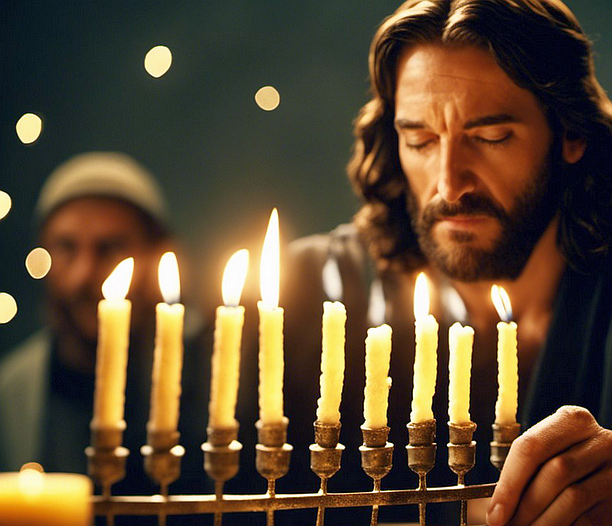Understanding the Messianic Prophecies in the Book of Numbers and Their Significance
The Messianic prophecies in the Book of Numbers hold great significance for both Christians and Jews, albeit with different interpretations. These prophecies provide insights into the nature, characteristics, and mission of the Messiah, and their understanding deepens our knowledge of Jesus as the fulfillment of Old Testament promises. Let us delve deeper into the topic and explore the various aspects of the Messianic prophecies in the Book of Numbers.
Overview of the Book of Numbers
The Book of Numbers, also known as the Torah, is the fourth book of the Old Testament. It recounts the Israelites’ journey from Mount Sinai to the Promised Land. This book covers significant events such as the census of the Israelites, the establishment of the priesthood of Aaron, and the rebellion against Moses. These narratives provide important context for understanding the Messianic prophecies found within the Book of Numbers.
For example, in Numbers 24:17-19, we find a Messianic prophecy that states, “I see him, but not now; I behold him, but not near. A star will come out of Jacob; a scepter will rise out of Israel.” This prophecy uses symbolic language and imagery to describe the characteristics and actions of the future Messiah. The Book of Numbers contains other passages with similar prophetic elements, all pointing towards the coming of a future Savior.
Messianic Prophecies in the Book of Numbers
Messianic prophecies are predictions in the Old Testament that foretell the coming of a future Messiah. The Book of Numbers contains several passages that are considered Messianic prophecies. These prophecies often use symbolic language and imagery to describe the characteristics and actions of the Messiah. They provide a glimpse into the future and offer hope to the people of Israel.
One example of a Messianic prophecy in the Book of Numbers is the prophecy mentioned earlier in Numbers 24:17-19. This prophecy speaks of a star coming out of Jacob and a scepter rising out of Israel. This imagery suggests that the Messiah will come from the lineage of Jacob and will rule over Israel. The symbolic language used in this prophecy adds depth to our understanding of the Messiah’s nature and role.
Interpretation of Messianic Prophecies in Relation to Jesus
The interpretation of the Messianic prophecies in the Book of Numbers varies between Christians and Jews. Christians believe that Jesus fulfills the Messianic prophecies in the Book of Numbers. They interpret these prophecies as referring to Jesus’ birth, ministry, sacrificial death, and resurrection. Christians base this interpretation on the Gospel accounts of Jesus’ life and teachings.
For instance, Christians see the prophecy in Numbers 24:17-19 as pointing to Jesus as the fulfillment. They believe that Jesus, who was born in Bethlehem and descended from the line of Jacob, is the star that came out of Jacob and the scepter that rose out of Israel. Christians see this prophecy as a foreshadowing of Jesus’ role as the Messiah and King.
On the other hand, most Jews do not accept Jesus as the fulfillment of the Messianic prophecies in the Book of Numbers. They interpret these prophecies as referring to future events or different individuals. Jewish interpretations of the prophecies vary, but they generally do not associate them with Jesus. Instead, they anticipate the coming of the Messiah in the future, who will fulfill these prophecies according to their understanding.
Jewish Understanding of Messianic Prophecies
The Jewish understanding of Messianic prophecies in the Book of Numbers differs from the Christian perspective. While Christians associate these prophecies with Jesus, most Jews interpret them as referring to future events or different individuals. They do not see Jesus as the fulfillment of the Messianic prophecies in the Book of Numbers.
Instead, Jews anticipate the coming of the Messiah, who will bring about the redemption and restoration of Israel. They believe that this future Messiah will fulfill the Messianic prophecies according to their understanding. While there may be different interpretations among Jewish scholars, the general consensus does not associate these prophecies with Jesus.
Historical Accuracy of Messianic Prophecies
The historical accuracy of the fulfillment of Messianic prophecies in the Book of Numbers is a subject of debate among scholars. Some argue that these prophecies were fulfilled in Jesus’ life and ministry, while others question their historical validity. To assess the accuracy of these prophecies, scholars analyze the context, language, and cultural background of the Book of Numbers.
It is important to note that the Messianic prophecies in the Book of Numbers, along with other Old Testament prophecies, were not initially seen as messianic by Jews before Christians interpreted them as such. Christians began to read Old Testament passages as predictions of Jesus because they believed He fulfilled Scripture. However, the interpretation of these prophecies and their historical accuracy remain topics of discussion among scholars.
Number and Variety of Messianic Prophecies in the Old Testament
The Old Testament contains numerous Messianic prophecies, with estimates ranging from 300 to over 400. These prophecies cover various aspects of the Messiah’s nature, ministry, and associations. They are found throughout different books of the Old Testament, including the Book of Numbers.
These Messianic prophecies provide a comprehensive picture of the coming Savior. They encompass predictions about the Messiah’s birth, lineage, ministry, suffering, death, and resurrection. The diversity and abundance of these prophecies demonstrate the importance and significance that the Old Testament places on the coming of the Messiah.
Titles and Descriptions of the Messiah in the Old Testament
The Old Testament uses various titles and descriptions to refer to the Messiah. These titles include “Anointed One,” “Servant,” “Star,” and “Branch,” among others. Each title highlights different aspects of the Messiah’s role and characteristics. Collectively, they provide a rich tapestry of images and symbolism related to the coming Savior.
For example, the title “Anointed One” emphasizes the Messiah’s role as the chosen one of God. The term “Servant” highlights the Messiah’s mission to serve and bring salvation to the people. The title “Star” symbolizes the Messiah’s guiding light and leadership. The term “Branch” signifies the Messiah’s connection to the lineage of David and his role in bringing forth new life and growth.
New Testament Confirmation of Messianic Prophecies
The New Testament writers often identify and interpret Messianic prophecies in light of Jesus’ life, teachings, death, and resurrection. They see Jesus as the fulfillment of these prophecies and present evidence for this in their writings. Through quotations, allusions, and explanations, the New Testament writers connect the Old Testament prophecies to Jesus.
For example, the Gospel of Matthew quotes the prophecy in Numbers 24:17-19 and applies it to Jesus. Matthew sees Jesus as the star that came out of Jacob and the scepter that rose out of Israel. He presents Jesus as the fulfillment of this Messianic prophecy, demonstrating the continuity between the Old and New Testaments.
Indirect Prophecies and Symbolism in the Book of Numbers
In addition to direct prophecies, the Book of Numbers contains indirect prophecies and symbolism that can be seen as pointing to the Messiah. These indirect prophecies include themes, similar circumstances, and matching details that can be interpreted as foreshadowing the coming of Jesus. The symbolic elements in the book provide additional layers of meaning and significance to the Messianic prophecies.
For instance, the story of the bronze serpent in Numbers 21:4-9 can be seen as an indirect prophecy of Jesus. Just as the Israelites were saved from physical death by looking at the bronze serpent, so too are people saved from spiritual death by looking to Jesus and His sacrifice on the cross. This symbolism in the Book of Numbers adds depth to our understanding of the Messianic prophecies and their fulfillment in Jesus.
Conclusion: Significance of Understanding the Messianic Prophecies in the Book of Numbers
In conclusion, the Messianic prophecies in the Book of Numbers provide valuable insights into the nature, characteristics, and mission of the Messiah. Understanding these prophecies deepens our knowledge of Jesus as the fulfillment of Old Testament promises. It highlights the continuity and fulfillment of God’s plan across the Old and New Testaments. By studying these prophecies, we gain a greater understanding of the nature and mission of the Messiah, Jesus Christ.The Messianic prophecies in the Book of Numbers play a crucial role in shaping our understanding of Jesus and His significance in the grand narrative of God’s redemptive plan for humanity.

